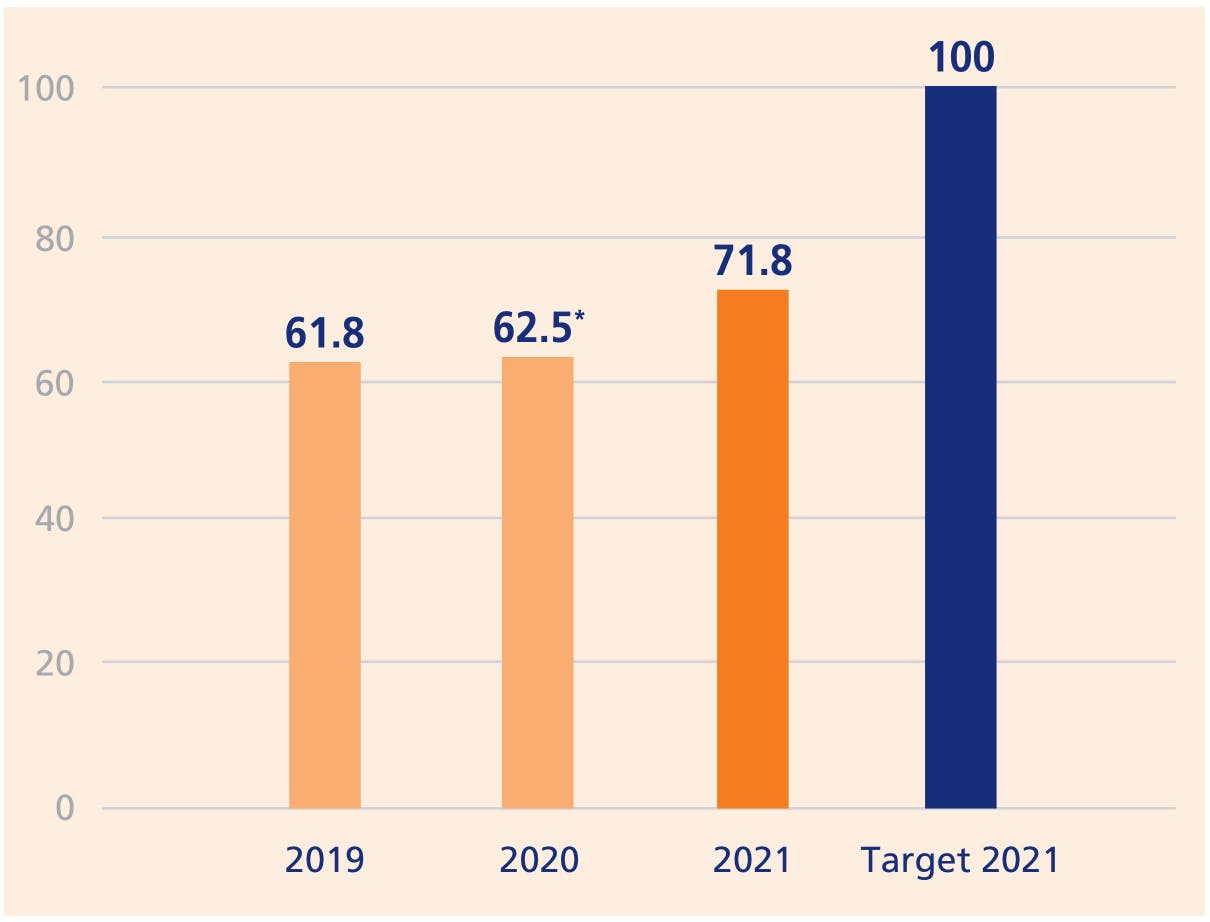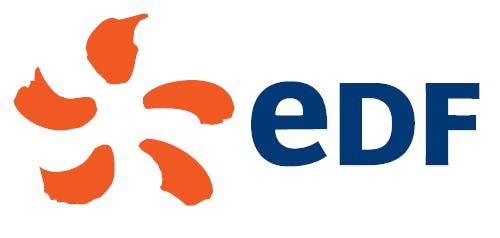| A system to prevent conflicts of interest | The entities have put in place a system designed to prevent conflicts of interest and raise employee awareness of high-risk situations, provide a system for employees to declare their links to organisations in which they have a personal interest, and require managers to resolve conflicts of interest with respect for individual freedoms. A support guide, including case studies to help managers identify and deal with conflicts of interest, was introduced in early 2021, and is also being used by RECs and managers to raise awareness among employees during dedicated meetings. |
|---|---|
| Fight against fraud | In accordance with the “Fight against fraud” memorandum of instructions, executives shall set up systems within their entities to raise awareness among their staff, put in place checks to detect potential cases of fraud, investigate incidents, report proven cases and sanction those responsible. |
| Regulation of interest representatives |
EDF is an interest representative within the meaning of the Sapin II Act. In this respect, it is registered on the list of interest representatives managed by the French High Authority for Transparency in Public Life (Haute Autorité pour la transparence de la vie publique, or HATVP). The network managers RTE, Enedis, and Dalkia are also registered: they each declare interest representation actions carried out during the year. The list of persons in charge of an interest representation identified in the register will be updated regularly. EDF also files with the HATVP an annual declaration relating to interest representation actions carried out that mentions actions aimed at influencing a public decision, with national public officials identified by the legislator. Lastly, lobbying has been added to the new version of the code of conduct. At the European level, EDF is listed on the Transparency Register of the European Parliament and the European Commission (no. 39966101835-69), regularly updates its data and applies the related code of conduct. In addition, in order to continue to raise awareness of ethical issues among interest representatives, the European Affairs Department has published its own internal ethics EU Lobbying Rules, available on the EDF website. EDF presents its positions publicly via this transparency register (1), and via associations of which it is a member (2). Its main messages are also posted on social media (LinkedIn, Twitter). The European Affairs Department has introduced a regular internal control process for these associations to ensure that they match its mission statement, following which decisions may be taken (withdrawal or new membership) where necessary. The estimated annual cost of the activities covered by the European Transparency Register since 2016 is around €2 million, with a downward trend. In 2021, the main initiatives focused, in particular, on the following priorities: support for the climate ambition (-55%) and the development of low-carbon electricity generation sources (including offshore), acceleration of the electrification of the economy, promotion of low-carbon hydrogen and support for the sustainable finance action plan and taxonomy. |
| Regulation of financing of political parties | The EDF group complies with the laws and regulations in force concerning the financing of political parties. Such financing may take place only in countries that allow it, and only with due regard to the principle of neutrality. In accordance with the legislation in force in France, EDF makes no p0ayments to political parties. The Group’s Italian and UK subsidiaries have written directly into their codes of conduct the prohibition of financing political parties. In countries where it is allowed (such as the United States), EDF group companies may determine whether they wish to provide financial support. Every year, the Group companies concerned must report any financing to their parent company. In 2021, EDF Renewables made payments in the United States, consisting of US$26,500 in the form of Political Action Committee contributions and US$314,500 in the form of Corporate contributions |
Group key performance indicator
The percentage of Group senior executives who have received training in how to prevent the risk of corruption and influence peddling is the Group’s current key performance indicator for the “Ethics, compliance and human rights” commitment. The methodology associated with this indicator is described in section 3.6 “Methodology”.
A change in 2020 mathematically led to a lower calculation of the senior executive rate than in 2019. At the end of 2021, this rate was 71.8%.
The increasing demands made during the various stages of the pandemic led some of the executives to prioritise actions to deploy the new code of conduct, which sets rules for all the issues identified in the corruption risk map (see above “An ethics & compliance code of conduct included with the internal rules of procedure and a disciplinary mechanism”).
Proportion of executives who have completed the anti-corruption training programme (%)

This graph shows us the proportion of executives who have completed the anti-corruption training programme (in %)
2019 : 61,8
2020 : 62,5*
2021 : 71,8
Target 2021 : 100
* Calculation methodology revised in 2020 to include only executives currently serving
(1) ec.europa.eu/transparencyregister/public/consultation/displaylobbyist.do ?id=39966101835-69
(2) avere.org/wp-content/uploads/2019/02/the_electrification_alliance_-_declaration-2017-030-0453-01-e.pdf (The Electrification Alliance Electricity for an Efficient and Decarbonised Europe).
